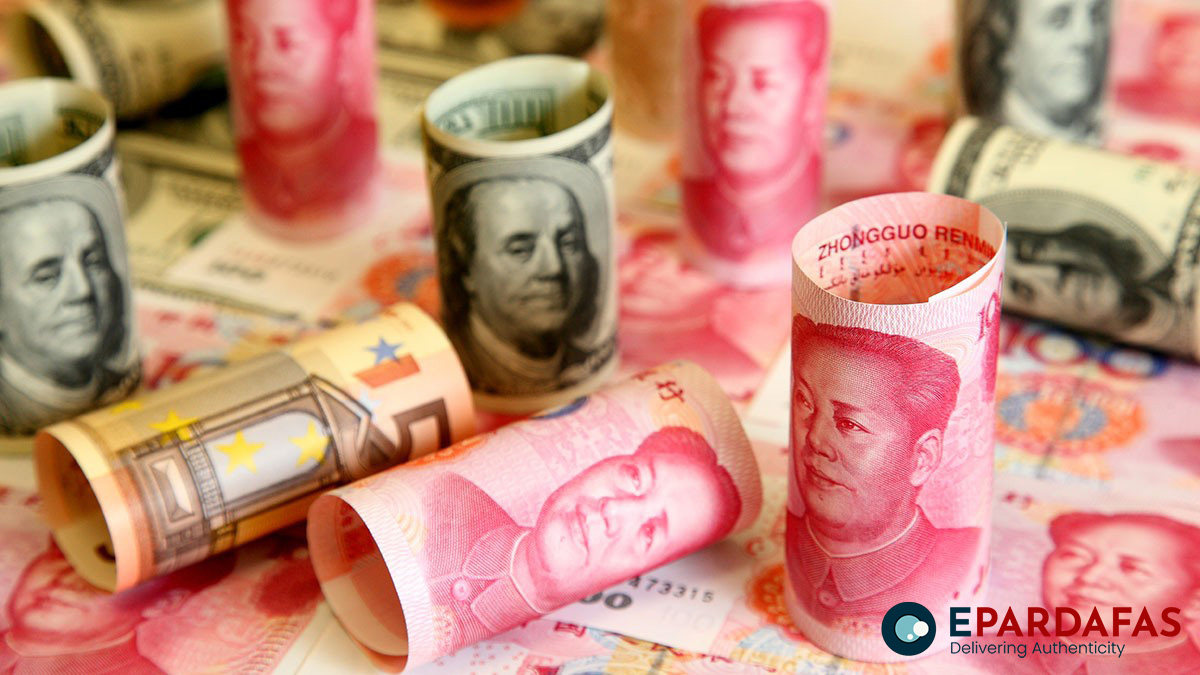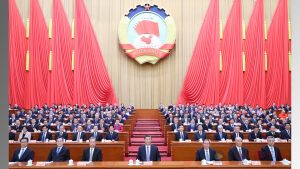
China’s Efforts to Revive Economy Face Doubts Amidst Property Woes
Recent developments in China’s financial markets, including Country Garden’s timely debt payments and Beijing’s measures to support the beleaguered real estate sector, have offered a glimmer of hope. However, experts are skeptical about the effectiveness of these initiatives in revitalizing China’s sluggish economy.
China’s services sector witnessed a significant decline in business activity in August, with the purchasing managers’ index (PMI) from Caixin China General Services plummeting to 51.8, marking its lowest level in eight months, down from 54.1 in July. A PMI score above 50 indicates expansion, while below 50 suggests contraction.
“The slowdown in business activity coincided with a weaker increase in overall new business. New orders increased modestly, and at a pace that was below the average seen for 2023 to date,” noted Caixin in a statement. This drop follows a decline in the official nonmanufacturing PMI to 51.0 in August from 51.5 in July, underscoring the persistent challenges faced by China’s economy, including sluggish demand and a struggling property market.
In response to these challenges, Beijing has rolled out a series of measures aimed at jumpstarting economic growth. These measures include lowering key interest rates, reducing bank lending rates to stimulate spending, extending tax relief for small businesses and rural households, and relaxing borrowing rules for homebuyers.
However, analysts at Capital Economics, a London-based independent economic research firm, remain skeptical about the effectiveness of these policy adjustments. They argue that these actions may not be sufficient to counteract the headwinds facing China’s economy.
The real estate sector’s troubles, including high debt levels and regulatory constraints, have been a significant contributor to China’s economic slowdown. The downturn in China’s largest property developer, Country Garden, has raised concerns about systemic risk and potential spillover effects on other industries.
Additional factors contributing to China’s economic challenges include the COVID-19 lockdowns, the ongoing trade war with the United States, an aging population, and a high debt burden that is expected to reach 84 percent of GDP in 2023.
Moody’s, a credit rating agency, also highlighted the need for a more rapid and comprehensive policy response from Chinese authorities. While stabilization in the property market could benefit short-term growth, the effectiveness of such measures depends on their interaction with other policies and their ability to restore confidence and income growth expectations.
As China grapples with these multifaceted economic challenges, the nation and the global community will closely monitor the effectiveness of policy measures and their impact on the path to recovery for the world’s second-largest economy.
















Comments